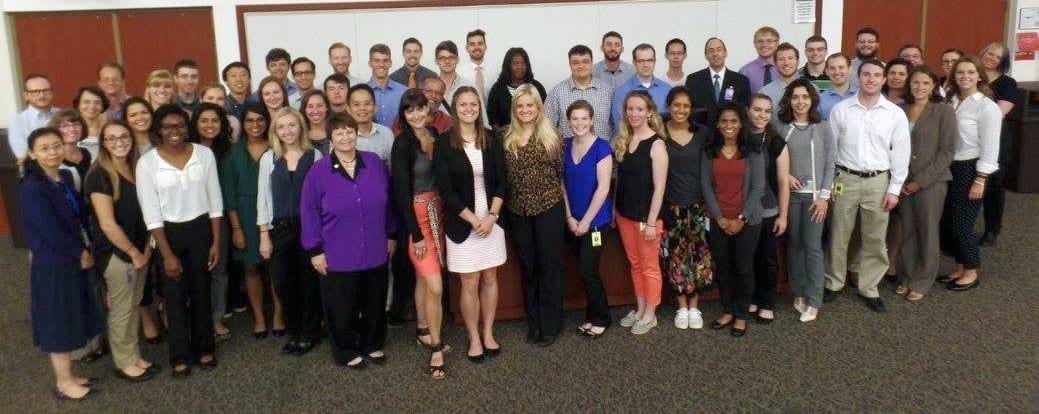
“By working together as a team, researchers and clinicians are providing the right treatment for the right patient at the right time,” stated Dr. Greenberg.
Jeffrey Gray, Ph.D., DMU’s vice president for Research and Global Initiatives, noted, “The keynote speaker’s discussion on the benefits of working in interdisciplinary research teams resonates well with what we are doing here at DMU. In the health care research environment, our goal is to solve some of the most complex problems, and that requires that we bring together different perspectives and different disciplines of study to come up with innovative solutions.”
Vanessa Ross, M.H.A.’15, CMP, CHCP, director of the University’s CME Program, stated, “Des Moines University is a multi-disciplinary institution, so this message impacts every student and faculty member who conducts research. The type of team you work with determines how far the impact of your research can reach.”

The DMU Mentored Student Research Program brings graduate and undergraduate students together to participate in an intensive eight-week research project. Selected students can choose from more than 35 mentors in a wide variety of specialties to fit their research and career goals. Students are involved in short-term or ongoing research and training and are required to present their studies to their peers and DMU faculty researchers via poster or oral presentations. The closing ceremony is just one of the ways that students gain confidence and meet the requirement of presenting their research to the medical community. Visit the DMU CME Facebook page to view photos from the closing ceremony.
A special thanks and congratulations to our student keynote speakers:
- Robert Katz, Cooperstown Graduate Program – “Evidence of Different Growth Strategies in Phytosaurs from the American Southwest”
Mentor: Sarah Werning, Ph.D.
- James Dorosh, D.O.’20, Des Moines University – “The Acinetobacter nosocomialis Strain M2 T6SS Effector Ase1 Degrades Peptidoglycan”
Mentor: Michael Carruthers, Ph.D.
- Christine Jackson, D.O.’20, Des Moines University – “Food Insecurity in Iowa: A Predictive Modeling Approach”
Mentor: Simon Geletta, Ph.D. - Pooja Gottumukkala, D.O.’21, Des Moines University – “Mediterranean Diet Pattern in the Multi-Ethnic Study of Atherosclerosis”
Mentor: Jun Dai, M.D., Ph.D.
Many students will continue their research and mentorship into the fall and throughout the year. On December 7, 2017, the Office of Research will host its eighth annual DMU Research Symposium to further showcase the efforts of these students and their faculty mentors. We are proud of the work that has gone into the 2017 summer program and are eager to see the astounding display of knowledge and commitment that is yet to come later this year. Research is vital to the advancement of the scientific community, and at DMU, students are vital to research.

